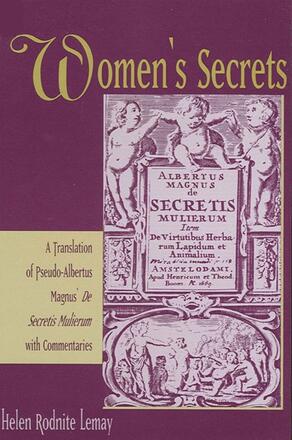
Women's Secrets
A Translation of Pseudo-Albertus Magnus' De Secretis Mulierum with Commentaries
Alternative formats available from:
Description
Women's Secrets provides the first modern translation of the notorious treatise De secretis mulierum, popular throughout the late middle ages and into modern times. The Secrets deals with human reproduction and was written to instruct celibate medieval monks on the facts of life and some of the ways of the universe. However, the book had a much more far-reaching influence. Lemay shows how its message that women were evil, lascivious creatures built on the misogyny of the work's Aristotelian sources and laid the groundwork for serious persecution of women.
Both the content of the treatise and the reputation of its author (erroneously believed to be Albertus Magnus) inspired a few medieval scholars to compose lengthy commentaries on the text, substantial selections from which are included, providing further evidence of how medieval men interpreted science and viewed the female body.
Helen Rodnite Lemay is Associate Professor of History at State University of New York at Stony Brook.
Reviews
"The book is to be commended for making accessible an extremely influential medieval and Renaissance text." — Linda Ehrsam Voigts, University of Missouri-Kansas City
"This is a smooth translation of an interesting and significant document. The introductory material is of high quality; Lemay is well aware of the interplay between philosophers and medical writers on a number of issues." — Edward A. Synan, Pontifical Institute of Mediaeval Studies and the University of Toronto